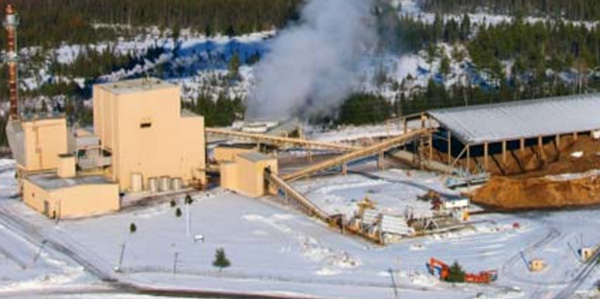By William Opalka
FERC ordered hearing and settlement procedures in a dispute over capacity obligations in an area of Northern Maine separate from ISO-NE (ER17-192).
The dispute concerns the Northern Maine Independent System Administrator, whose transmission system is not directly connected with the rest of New England and whose market participants are not subject to ISO-NE’s jurisdiction and do not participate in the New England Power Pool.
At issue is the ISA’s request to eliminate a requirement that market participants prove the deliverability for resources located outside Northern Maine but within the New Brunswick balancing authority area, of which the ISA is a part.
NMISA said the deliverability assurance requirement in its market rules is no longer needed because its rebuild of Line 691 and planned spring 2017 upgrade of the Tinker transformer at the New Brunswick-Northern Maine interface will eliminate the transmission constraint into the area.
The request was protested by ReEnergy Biomass Operations, which owns the 37-MW Fort Fairfield and 39-MW Ashland generating plants in Aroostook County, within the NMISA control area.
ReEnergy contends that even after completion of the upgrade, as much as 140 MW of load in Northern Maine could be reliant on 98 MW of available transmission capacity from New Brunswick. It said the upgrade was required to support 74 MW of existing firm reservations, meaning the upgrade would only add 24 MW of additional firm transmission capacity. Eliminating the deliverability requirement would impact reliability and distort price signals, it added.
NMISA disputes ReEnergy’s calculations, saying its 140-MW load estimate includes Eastern Maine Electric Cooperative, which should not be counted because it is not connected to New Brunswick via the Emera Maine-New Brunswick interface.
It said that the total Emera Maine capacity requirement for summer 2016, including reserve margin, was 124 MW, below the 129-MW total summer transfer capability from New Brunswick to Northern Maine once the upgrade is complete.
The authority said ReEnergy opposes the changes because it wants to maintain a competitive advantage in the area. If the requirement were maintained, market participants would be incented to hoard firm transmission capacity, preventing other resources from competing in the market, it said. The authority’s position was backed by the Maine Public Utilities Commission, which also said it feared reduced competition and higher prices if the rule remained.
FERC’s Dec. 22 order accepted NMISA’s proposed change subject to refund but suspended it, saying it needed more information to resolve the factual dispute over how much capacity will be provided by the upgrade.
“NMISA has not demonstrated that the Tinker upgrade located at the New Brunswick-Northern Maine interface will relieve the constraint at this interface, or that capacity located inside and outside of the Northern Maine transmission system is capable of meeting Northern Maine’s peak load capacity requirements before and after the Tinker upgrade,” the commission said.




